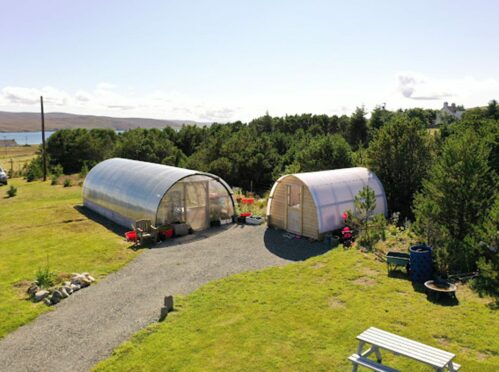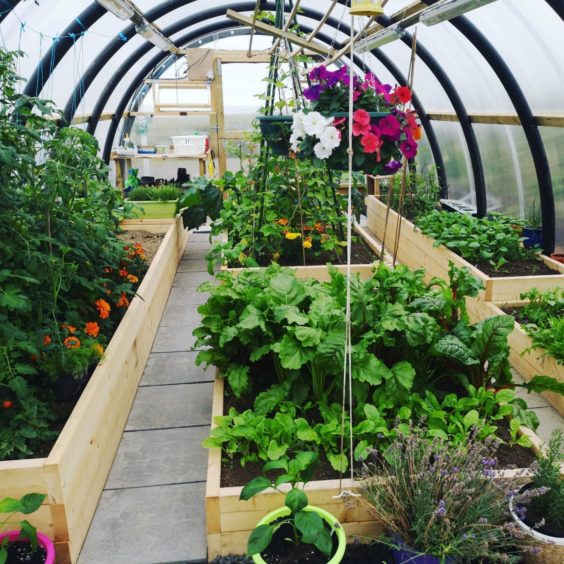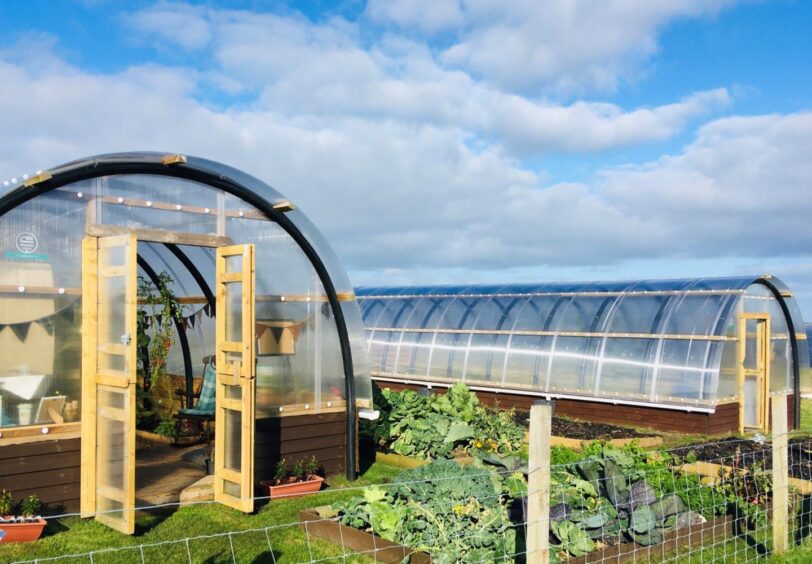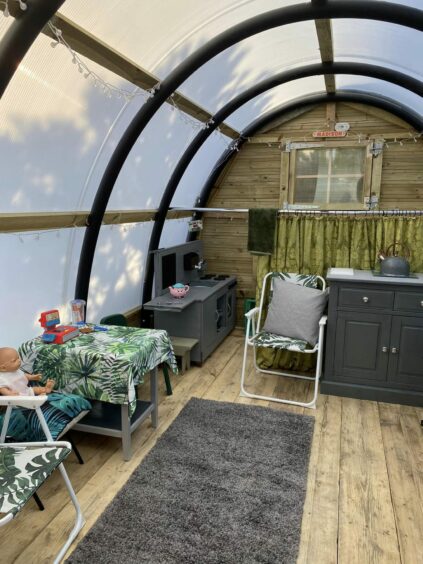Starting out as a community project in the North of Shetland, Polycrub has evolved into a successful, international social enterprise.
-
Some Press and Journal online content is funded by outside parties. The revenue from this helps to sustain our independent news gathering. You will always know if you are reading paid-for material as it will be clearly labelled as “Partnership” on the site and on social media channels.
This can take two different forms.
“Presented by”
This means the content has been paid for and produced by the named advertiser.
“In partnership with”
This means the content has been paid for and approved by the named advertiser but written and edited by our own commercial content team.
The company now produces storm-strength polytunnels for customers as far flung as Greenland and the Falkland Islands.
Not only that, Polycrub’s success has also seen several hundred thousand pounds invested back into the local community.
How Polycrub started
It’s safe to say Northmavine in Shetland is no stranger to harsh weather.
Although keen to reduce food miles and extend the exceptionally short growing season, Northmavine locals were unable to find polytunnels or greenhouses that could withstand the Shetland weather.
So they decided to design and build their own!
Super-strong polytunnel designed for harsh environments
The Polycrub concept – a polytunnel and greenhouse hybrid designed to withstand harsh environments – began as a community project in 2007.
Undertaking both the design and build, the local community didn’t have to look too far for suitable materials.
In fact, they soon discovered that redundant pipe from the Shetland aquaculture industry, which would be otherwise destined for landfill, was the ideal material for the frame.
Then, thick polycarbonate was chosen as the external covering, as it offered the longest lifespan in the harshest of conditions.
And so, the storm-strength polytunnel was born.
A social enterprise with a green ethos
The community were keen to put their unique polytunnel design to good use.
Securing grant aid from the Climate Challenge Fund, construction began later that year on twelve of the newly designed community polytunnels. Each one was split into shared plots and, as a result, 50 people in the Northmavine community were able to grow undercover.
This was meant to be the end of the story.
However, once the successful community growing project was underway, the new buildings attracted a great deal of interest.
Other community groups and individuals were keen to find out more about the newly designed, ultra-robust polytunnels.
Having already established the Northmavine Community Development Company (NCDC), a charity working alongside local people to regenerate and develop Northmavine, the industrious community seized the opportunity.
They branded the structures as the ‘Polycrub’, with ‘poly’ coming from the polycarbonate covering and a ‘crub’ in Shetland meaning a sheltered growing area.
And then set up a social enterprise company to sell the polytunnel structures, channelling all profits back into the NCDC.
Finding customers beyond Shetland
Now, with an international customer base and numerous awards to its name, the Polycrub company is thriving. A social enterprise born out of necessity, community and a passionate green ethos, the company continually receives heartwarming feedback from delighted ‘Polycrubbers’.
While popular with gardeners and individual growers looking for a robust growing space, Polycrubs are also perfect for schools and community groups who may even be able to access grant funding for Polycrub growing projects.
Crofters and farmers with plans for crofting diversification may also be eligible for funding support to purchase Polycrubs through the agricultural grants system.
All customers can enjoy their undercover growing space in the wildest of climes without the worry that it will, as they say in Shetland, ‘blaa awaa!’.



